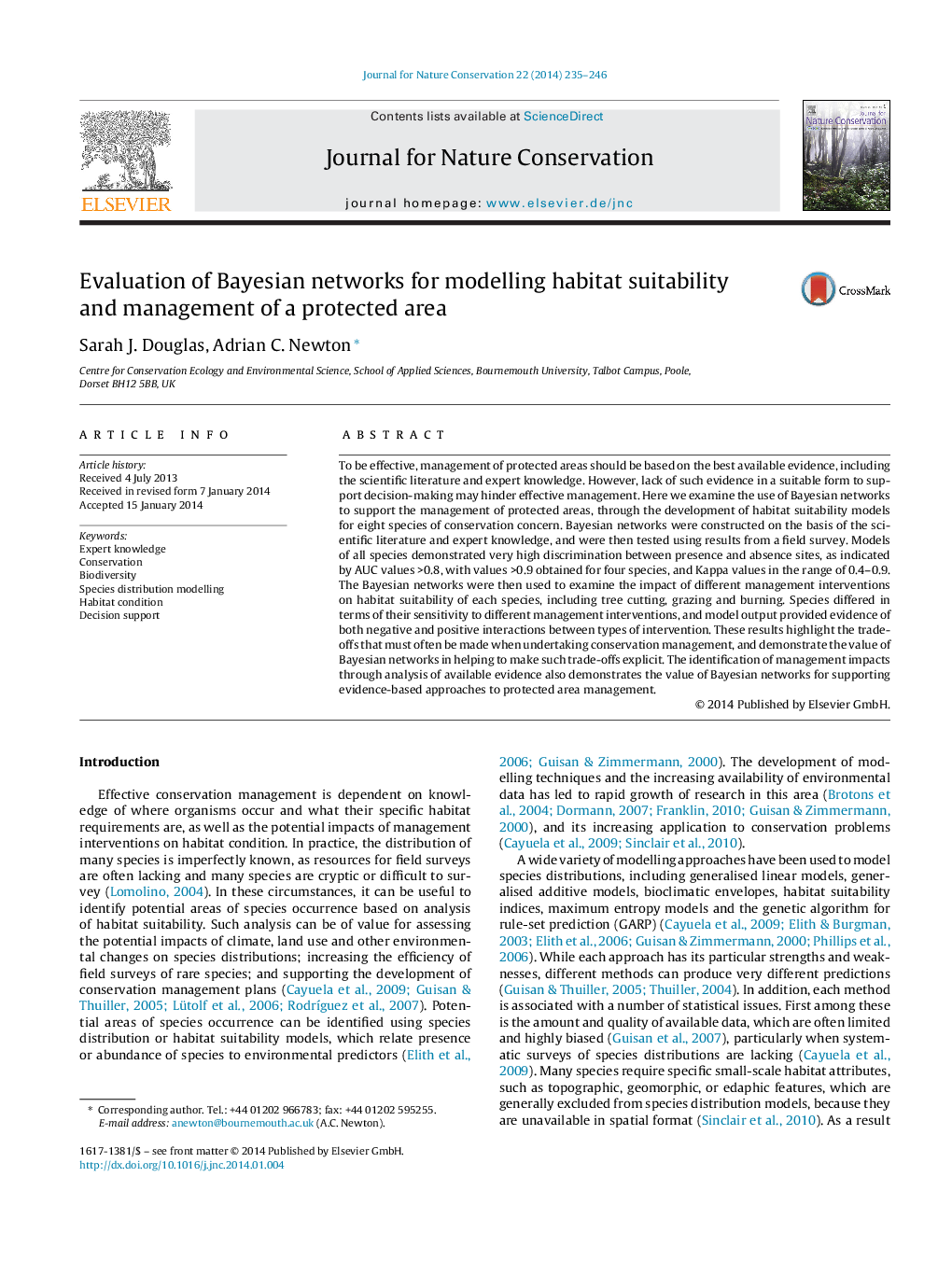| Article ID | Journal | Published Year | Pages | File Type |
|---|---|---|---|---|
| 4399816 | Journal for Nature Conservation | 2014 | 12 Pages |
To be effective, management of protected areas should be based on the best available evidence, including the scientific literature and expert knowledge. However, lack of such evidence in a suitable form to support decision-making may hinder effective management. Here we examine the use of Bayesian networks to support the management of protected areas, through the development of habitat suitability models for eight species of conservation concern. Bayesian networks were constructed on the basis of the scientific literature and expert knowledge, and were then tested using results from a field survey. Models of all species demonstrated very high discrimination between presence and absence sites, as indicated by AUC values >0.8, with values >0.9 obtained for four species, and Kappa values in the range of 0.4–0.9. The Bayesian networks were then used to examine the impact of different management interventions on habitat suitability of each species, including tree cutting, grazing and burning. Species differed in terms of their sensitivity to different management interventions, and model output provided evidence of both negative and positive interactions between types of intervention. These results highlight the trade-offs that must often be made when undertaking conservation management, and demonstrate the value of Bayesian networks in helping to make such trade-offs explicit. The identification of management impacts through analysis of available evidence also demonstrates the value of Bayesian networks for supporting evidence-based approaches to protected area management.
